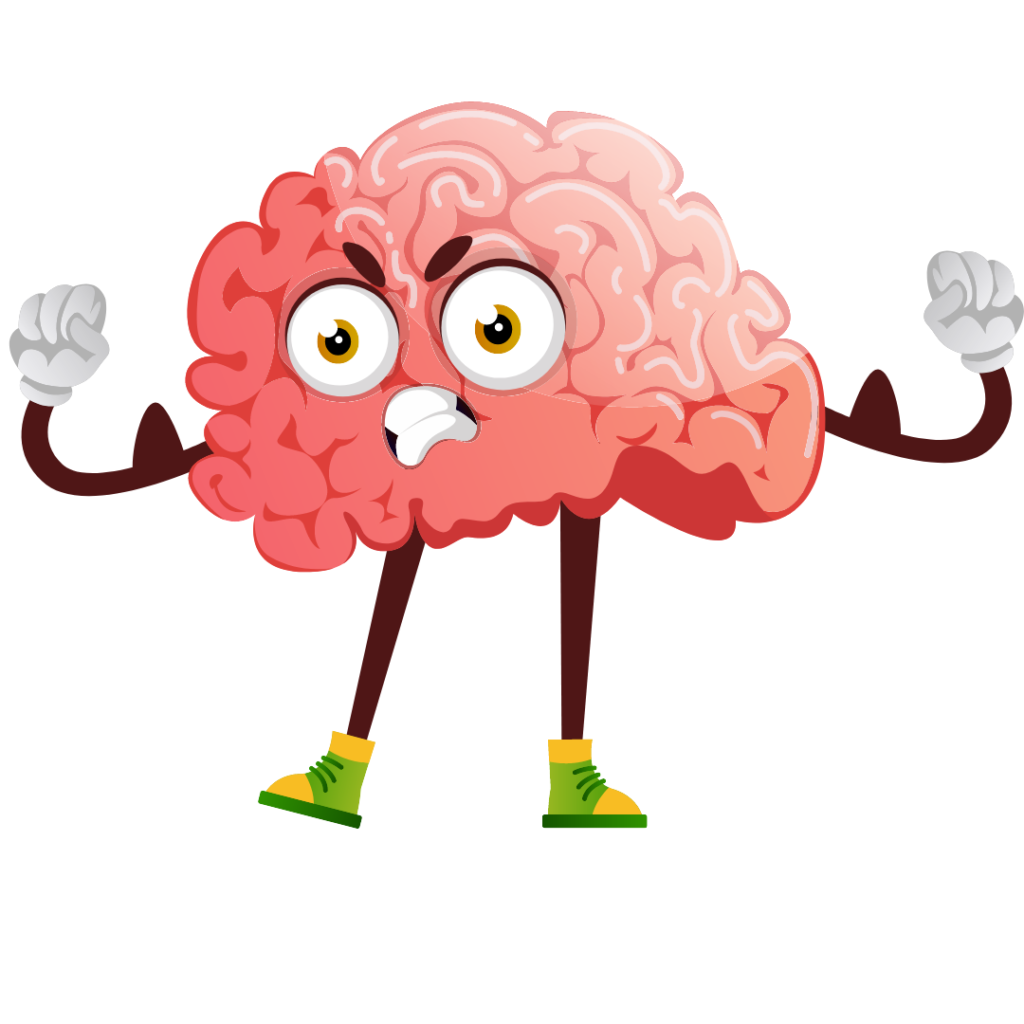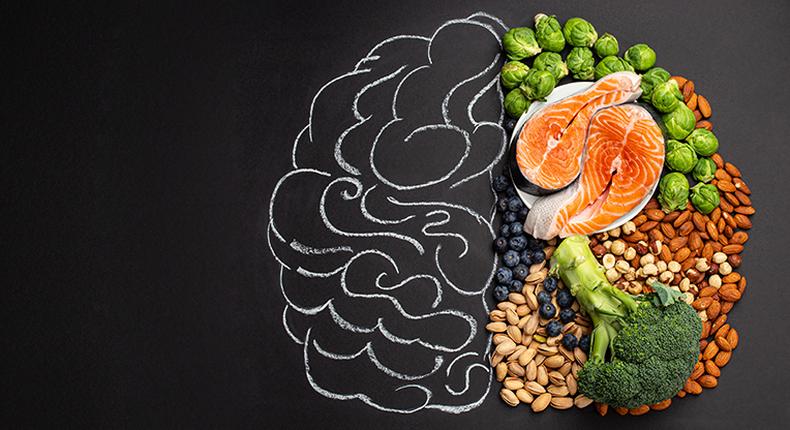Understanding the Impact of Malnutrition on the Brain in Restrictive Eating Disorders
by Zuzanna Gajowiec
Supporting someone in recovery from a restrictive eating disorder can be an overwhelming and distressing experience.
One of the most critical concerns in these situations is the impact of malnutrition on the brain, especially on the developing brain. Curtailed brain development occurs not only in adolescents, but also in early adulthood (our brains are not fully developed until we reach 25 years of age).
Understanding the intricate relationship between restrictive eating disorders and brain health can make a difference in how you, as parents and family members, provide support and encourage the recovery of your loved one. We hope that this blog post will bring you some clarity and encouragement.
The Brain-Malnutrition Connection:

Malnutrition, a common consequence of restrictive eating disorders, has profound effects on the brain.
The brain is a highly energy-dependent organ, and when it is deprived of essential nutrients, its structure and function can be compromised. Children and adolescents are particularly vulnerable to these effects as their brains are still developing.
The brain is affected, not only when your loved one is eating too little, but also by disrupted eating behaviours. Chaotic eating patterns (for example very long breaks between meals, restricting and over-eating patterns) negatively impact adequate nutrition absorption; thus, the brain does not get the nutrients it needs to function properly.
It is also important to note that the common belief amongst parents (and even some doctors), that the medical complications of anorexia only happen when the person is extremely thin and “wasting away” is not true. Extreme and sudden weight loss, atypical anorexia, the use of laxatives and purging – can all lead to severe malnourishment even if the person’s body is within “normal” range.
The lack of appropriate nutrition can lead to:
- Cognitive Impairment: affecting a child’s ability to think, concentrate, and make decisions. We all know how difficult it is for people suffering from an eating disorder to recognise any negative consequences of their disorder. The chances are, your loved one is a high achiever and a bit of a perfectionist, so sometimes, when we help them link memory issues they are experiencing (for example making it difficult for them to retain information and perform well academically), it can build a little block of motivation.
In general, when talking about nutrition it is helpful not to talk about weight gain and eating, but more explain what each substance does for the brain and the body – what it does to help and what are the consequences of a lack of nutrition (dietitians are so helpful here and that is why they are essential to have on your team).
Only a well-balanced and nutrient-dense diet can restore the cognitive functions. Refeeding provides the brain with the energy and nutrients it needs to repair and rebuild. Therapy, without refeeding, will not heal your loved one from an eating disorder.
- Emotional Dysregulation: The brain’s ability to regulate emotions can be severely impacted by malnutrition. People with restrictive eating disorders typically experience heightened anxiety, irritability, and mood swings. When eating disorders affect the developing brain we have a double dysregulation – a “brain under construction” and a malnourished brain.
This may be hard to adjust to, and during recovery parents and carers need to learn a lot of new skills to manage this highly dysregulated brain. If there are even more issues to add to the mix – trauma of being bullied, rejected, or excluded; depression, OCD or any other issues – parents need a lot of support to manage this level of difficult emotional responses.
What can help here is to understand that the best tool you have is your regulated (or regulated enough!) nervous system, your calm tone of voice and supportive body language.
Adequate nutrition is essential for stabilizing mood and emotions. Refeeding helps regulate the neurotransmitters and hormones that influence emotional states, creating a more conducive environment for therapeutic interventions.
- Structural Changes: Chronic malnutrition can result in structural changes to the brain, particularly in areas responsible for decision-making, impulse control, and emotional processing.
We know from research that a lack of nourishment leads to the shrinking in the overall size of the brain, including both grey and white brain matter. This can lead to progressive difficulties in thinking, switching tasks, and setting priorities. Some of it can be reversed, some may not.
We can appreciate that information like this is scary to read but there is a lot of hope – many scientists believe that at least some of what was lost can be restored. (Factors that may influence the amount of damage reversed seem to include the duration and severity of the eating disorder.)
An interesting piece of research conducted by Yale university in 2010 demonstrated the harmful effect of restrictive eating on the brain – as well as the possibility to rebound.
The study, published in the International Journal of Eating Disorders, compared MRI images of female patients who ranged in age from 18 to 45. Thirty-two of those women had an eating disorder, while 21 were without psychiatric illnesses. The patients all received brain scans prior to receiving inpatient weight-gain treatment. Once they had reached 90 percent of their ideal weight gain in treatment, they were scanned again.
The average grey matter volume of the women with an eating disorder (before treatment) was significantly less than the healthy individuals: 648 millilitres versus 680. Furthermore, those who had been fighting their illness the longest showed the greatest reductions in brain volume. After their second scan (the one following their treatment), however, the disordered eating participants’ grey matter increased to an average of 663 millilitres.
Researchers who led the study hypothesised that while the brain’s grey matter hadn’t fully recovered, it would continue to grow and potentially normalize if the patients were able to maintain their weight gain. So, a very positive finding!
- Risk of Mental Health Disorders: Malnutrition increases the risk of developing mental health disorders, such as depression and anxiety. The compromised brain function can exacerbate existing emotional struggles, creating a vicious cycle that hinders recovery.
- Risk of Relapse: Without proper nourishment, individuals recovering from anorexia nervosa may be at a higher risk of relapse. The brain needs essential nutrients to repair and restore its functions, and refeeding is a key component in preventing setbacks in the recovery journey.
- Refeeding the brain is crucial for preventing long-term complications associated with anorexia nervosa, such as osteoporosis, cardiovascular issues, and hormonal imbalances. Adequate nutrition supports the body’s overall recovery, reducing the risk of physical and mental health complications in the future.
Supporting Brain Health in Recovery:

As a parent and carer – you play a crucial role in supporting your loved one’s brain health during the recovery process.
- Collaborate with healthcare professionals: Find a trustworthy team comprising of GP, dietitian, psychologist, or psychotherapist specializing in eating disorders. Insist to be considered part of the team (regardless of your loved one’s age).
- Prioritize the nutritional rehabilitation of your loved one: Parents and carers often start well, following the recommendations from the dietitian – but when their loved one experiences distress they start to doubt the process and they either feel helpless and disappointed or they collude with the eating disorder (..you had a hard day today, we can skip the last snack to make it easier for you… etc).
We hope this post and really understanding what is at stake here will help you to keep learning how to support the dysregulated brain better, rather than feeling helpless or giving into the disordered patterns.
Recovering from anorexia nervosa is a complex journey that requires a multi-faceted approach, and we hope you can understand now that one of the most critical aspects is refeeding the brain. Refeeding is the process of gradually reintroducing and increasing caloric intake to restore the body’s nutritional balance. This is crucial for repairing damaged tissues, replenishing essential vitamins and minerals, and promoting overall physical and mental health.
So how can you help?:

As a parent or carer, you play a pivotal role in the process of healing.
Your main superpowers are:
- Emotional support: The more you learn about eating disorders and your role in recovery, the better you will be at providing a supportive and non-judgmental environment and emotional co-regulation. It is important to find some safe language to be able to openly talk about challenges and worries (it helps to externalize the eating disorder, sometimes by giving it a name; sometimes finding metaphors to talk about triggering issues without using triggering words).
- Monitor progress: Regularly assess your child’s cognitive and emotional well-being and communicate any concerns to the healthcare team. No one knows your loved one as well as you do. Professionals only hear what your loved one tells them – please communicate your concerns, even if the communication only works one way.
- Be patient: One of the main feedback comments we get from parents we have worked with is that the understanding that recovery is a slow process in nature, not anyone’s failure or fault was most helpful. It helped them to find acceptance and allowed them to prepare for a “marathon not a sprint”. The more they understood that the healing of the brain and other internal organs takes time – the more realistic expectations they had which helped both them and their loved ones.
To summarize – the most effective way to contribute to your loved one’s recovery is to actively support the refeeding process.
We hope that this post provides you with more understanding around why and how to prioritize nutrition, especially in the initial stages of recovery. And don’t hesitate to reach out if you need support!
Zuzanna
Additional Reading: if you want to read more, please check:
- “Sick enough” by Jennifer Gaudiani
- “Skills Based Caring for a Loved One with an Eating Disorder” – Janet Treasure et al
- http://umm.edu/health/medical/reports/articles/eating-disorders
- http://www.ucdenver.edu/about/newsroom/newsreleases/Pages/New-brain-research-suggests-eating-disorders-impact-brain-function.aspx
- http://www.livescience.com/8293-brain-shrinkage-anorexia-reversible.html
- http://www.healthyplace.com/eating-disorders/anorexia-nervosa/anorexia-health-problems-complications-of-anorexia/




